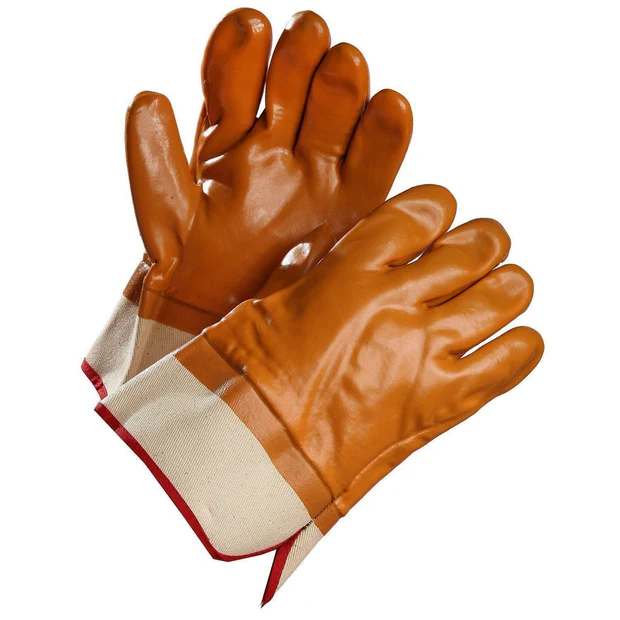Chemical Gloves Manufacturer in China
Classification of Chemical Gloves by Material
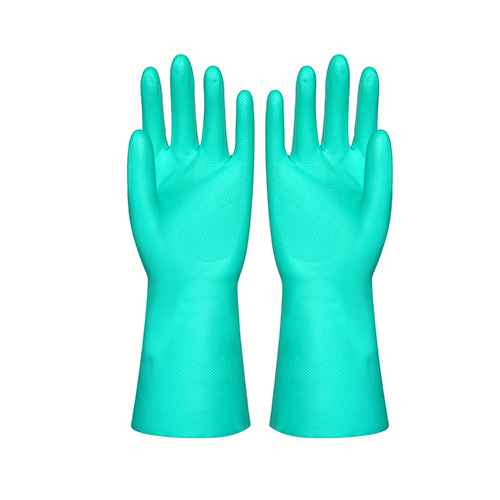
Nitrile gloves are typically made from synthetic rubber known as nitrile. Generally, nitrile material possesses chemical resistance properties, thus nitrile gloves exhibit excellent chemical resistance.

PVC gloves have extremely high chemical resistance and can withstand a variety of chemicals. They are widely used in manufacturing, maintenance, chemical processing, and other industries.
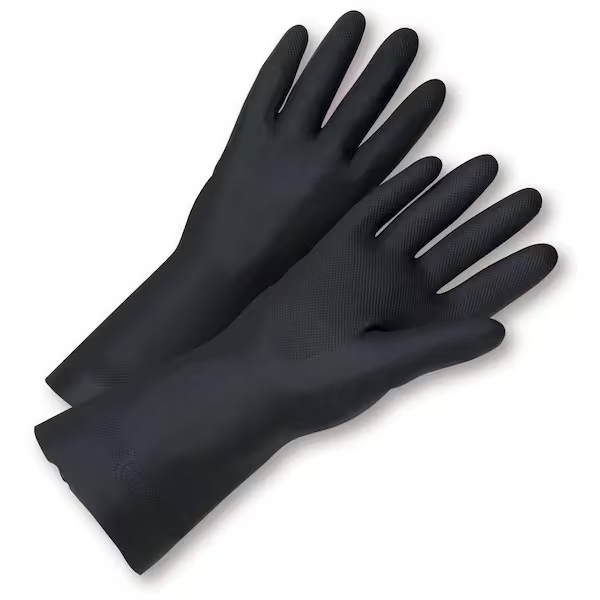
Neoprene Gloves are versatile chemical-resistant gloves with good chemical tolerance, effectively resisting various chemicals. They are commonly used in a wide range of industrial and laboratory work settings.

Disposable nitrile gloves, due to their material being nitrile, can also resist mild acids, alkalis, and other chemicals. However, when dealing with strong acids or alkalis, it is advisable to choose more specialized gloves.
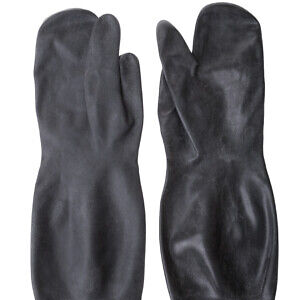
Butyl Latex gloves provide a certain degree of chemical resistance to various chemicals, including acids, alkalis, solvents, and more. They offer a layer of protection, allowing users to safely handle chemicals.

Choose the right chemical gloves
Generally speaking, Aibon’s chemical-resistant gloves come in various materials. When choosing each type of material, many factors need to be considered. For instance, if you need gloves that are both chemically resistant and abrasion-resistant, selecting chemical-resistant gloves might be more suitable for you. If you are looking for affordable, chemical-resistant, and waterproof gloves, nitrile gloves could be the right choice.
The key to making the appropriate selection is to assess your specific needs. You should not limit yourself to one option but instead determine your requirements first. This includes ensuring the correct size and fit of the gloves, as gloves that are too long, too short, too large, or too small can affect your comfort and might even cause unnecessary trouble during use. Therefore, choosing the right size and fit should be done carefully.
If you are unsure about how to choose or if you are interested in purchasing gloves, you can always reach out to us. We will provide you with the most sincere and honest advice.
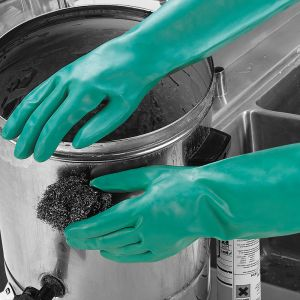
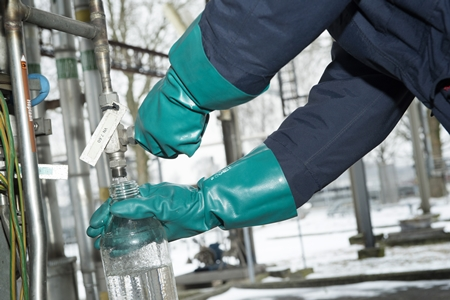
Usage scenarios of chemical resistant gloves
With the increased use of electronic devices, we have incorporated conductive threads into our chemical-resistant gloves, allowing them to interact with touch screens without needing to remove them.
Additionally, we have added a thin film lining inside the gloves to absorb sweat, preventing mold and odor, and ensuring long-term use and wearability.
Moreover, we have added textured patterns to the gloves, such as fish scales or diamond patterns, to enhance grip in wet and greasy environments.
Aibon’s chemical gloves are lightweight and offer great flexibility and ease of use. Furthermore, all our gloves undergo penetration testing to ensure maximum safety for the user.
Different materials chemical glove options
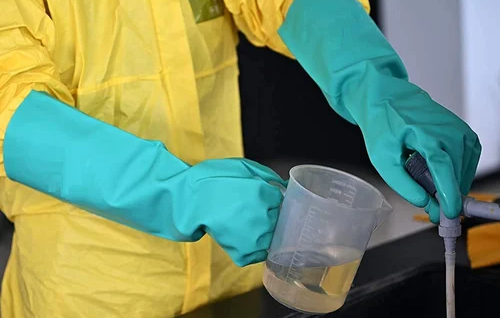
At Aibon, our chemical-resistant gloves come in various types, categorized according to their materials, as different materials offer protection against different chemical substances.
Here is a detailed list of the chemical substances that each type of Aibon chemical-resistant glove can protect against based on its material. Please consider this information carefully when selecting gloves:
Latex Gloves: Generally suitable for protection against diluted acids, alkalis, alcohols, and other chemicals, but not effective against organic solvents (such as benzene and toluene) or petroleum products.
Nitrile Gloves: Protect oils, petroleum products, organic solvents, acids, and alkalis. However, they are not suitable for protection against ketones (such as acetone) and esters.
Neoprene Gloves: These can protect against most chemical substances, including sulfuric acid, hydrochloric acid, nitric acid, sodium hydroxide, as well as some alcohols (ethanol, methanol) and esters (ethyl acetate). They also offer some protection against esters (such as ethyl acetate), ethers (such as diethyl ether), and certain oxidizers.
However, there are some substances that neoprene gloves cannot protect against, such as benzene, toluene, xylene, certain strong oxidizers, and some ketones.
If you are interested in our products, please contact us.




